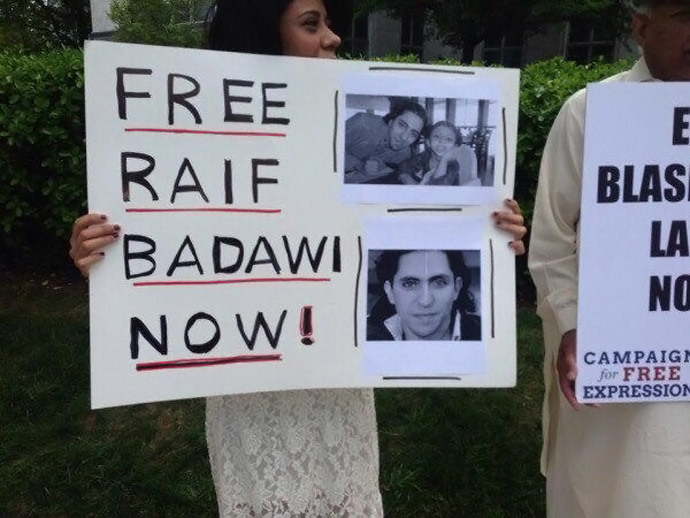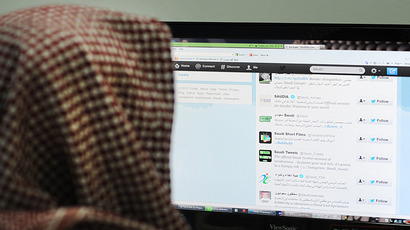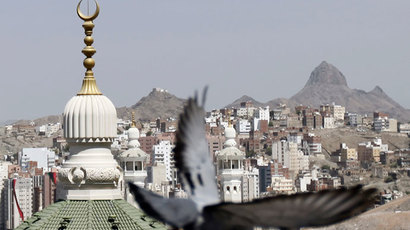‘Prisoner of conscience’: Saudi blogger gets 10 years, 1000 lashes for ‘insulting Islam’
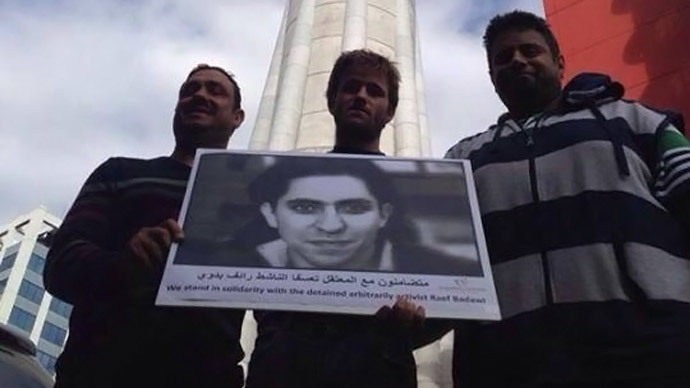
A Saudi court has sentenced blogger and activist Raif Badawi to 10 years in prison and 1000 lashes for “insulting Islam.” Amnesty International called him “a prisoner of conscience who is guilty of nothing.”
Badawi, currently serving a seven-year prison term on the same charges, was also ordered to pay a fine of 1 million Saudi riyals (about $265,000) by the Criminal Court in the eastern city of Jeddah.
His lawyers said the sentence was too severe for a blogger. However, the prosecutor demanded a harsher penalty, according to Saudi news website Sabq. They wanted him to be charged with apostasy, a graver accusation which leads to the death sentence.
Badawi’s persecution of what was called by the country’s authorities as “insulting Islam” started in 2008 after he co-founded the “Free Saudi Liberals” website to discuss the role of religion in Saudi Arabia. The network declared May 7, 2012 a "day of liberalism" in the kingdom and called for an end of religion domination over public life.
In order to escape arrest, the blogger then fled the country. He returned when the charges against him were dropped, but was jailed in June 2012.
In July 2013 Badawi was sentenced to 600 lashes and seven years in prison for “insulting Islam” via his online forum, as well as violating Saudi Arabia’s anti-cybercrime law.
According to another co-founder of the site, female rights activist Suad al-Shammari, the Saudi Liberal Network has been active only online and its activities remain virtual, reported AFP.
Amnesty International is calling the authorities in Saudi Arabia to overturn Badawi’s conviction and release him “immediately and unconditionally.”
“The decision to sentence Raif Badawi to 10 years in prison and 1000 lashes is outrageous,” said Philip Luther, Director of the Middle East and North Africa Programme at Amnesty International, “He is a prisoner of conscience who is guilty of nothing more than daring to create a public forum for discussion and peacefully exercising the right to freedom of expression.”
According to Luther, Badawi is “the latest victim to fall prey to the ruthless campaign to silence peaceful activists in Saudi Arabia.”
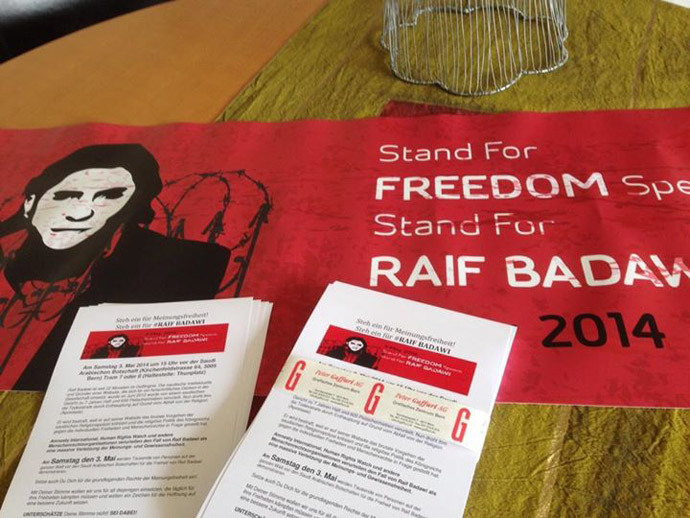
“The authorities seem determined to crush all forms of dissent through every means at their disposal, including imposing harsh prison sentences and corporal punishment on activists,” he added.
Amnesty International has spoken out against Saudi Arabia’s oppressive practices by releasing a report called “Saudi Arabia: Unfulfilled Promises” in October 2013. The report condemned the country for failing to implement any of the main recommendations they accepted under a previous review by the Human Rights Council (UNHRC) which took place in 2009.
However, Amnesty’s criticism did not prevent Saudi Arabia from being elected to the UN Human Rights Council in November 2013. Its three-year term in UNHRC started January 1, 2014.
Meanwhile, Badawi is not the only one activists persecuted by the authorities in the conservative Islamic kingdom.
In April 2014 Waleed Abu al-Khair, the rights activist, lawyer and the head of the Monitor of Human Rights in Saudi Arabia (MHRSA) organization, was arrested by a Saudi court when he was attending the fifth session of the trial on sedition charges, according to his wife. She also added that he was suffering "torture for political purposes."
Media in Saudi Arabia is strictly self-censored. Political dissent or criticism of the royal family is not tolerated, and protests are outlawed. The death penalty is still applied to a wide range of non-lethal crimes such as adultery, armed robbery, apostasy, drug smuggling, kidnapping, rape, “witchcraft,” and “sorcery.”
